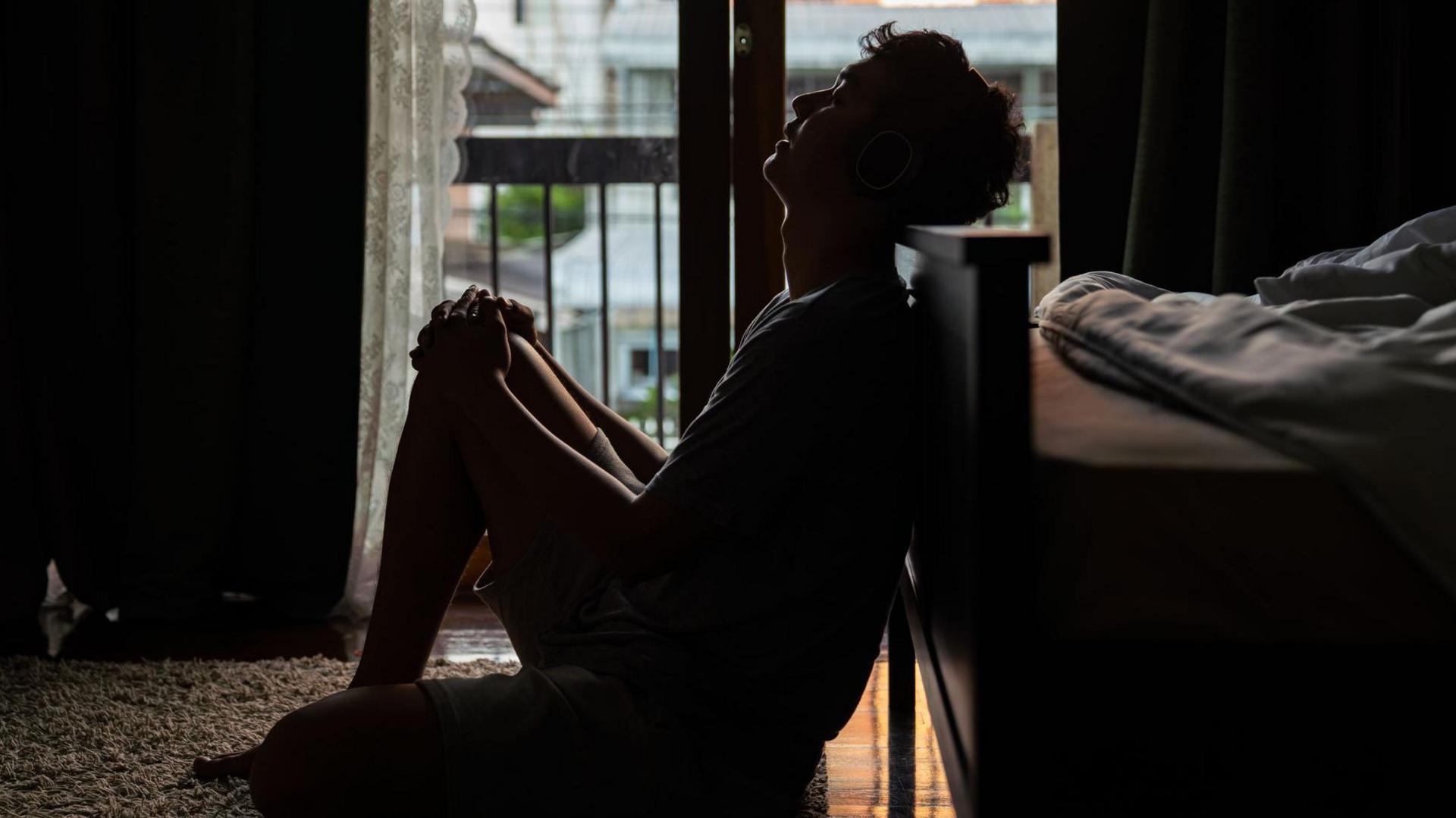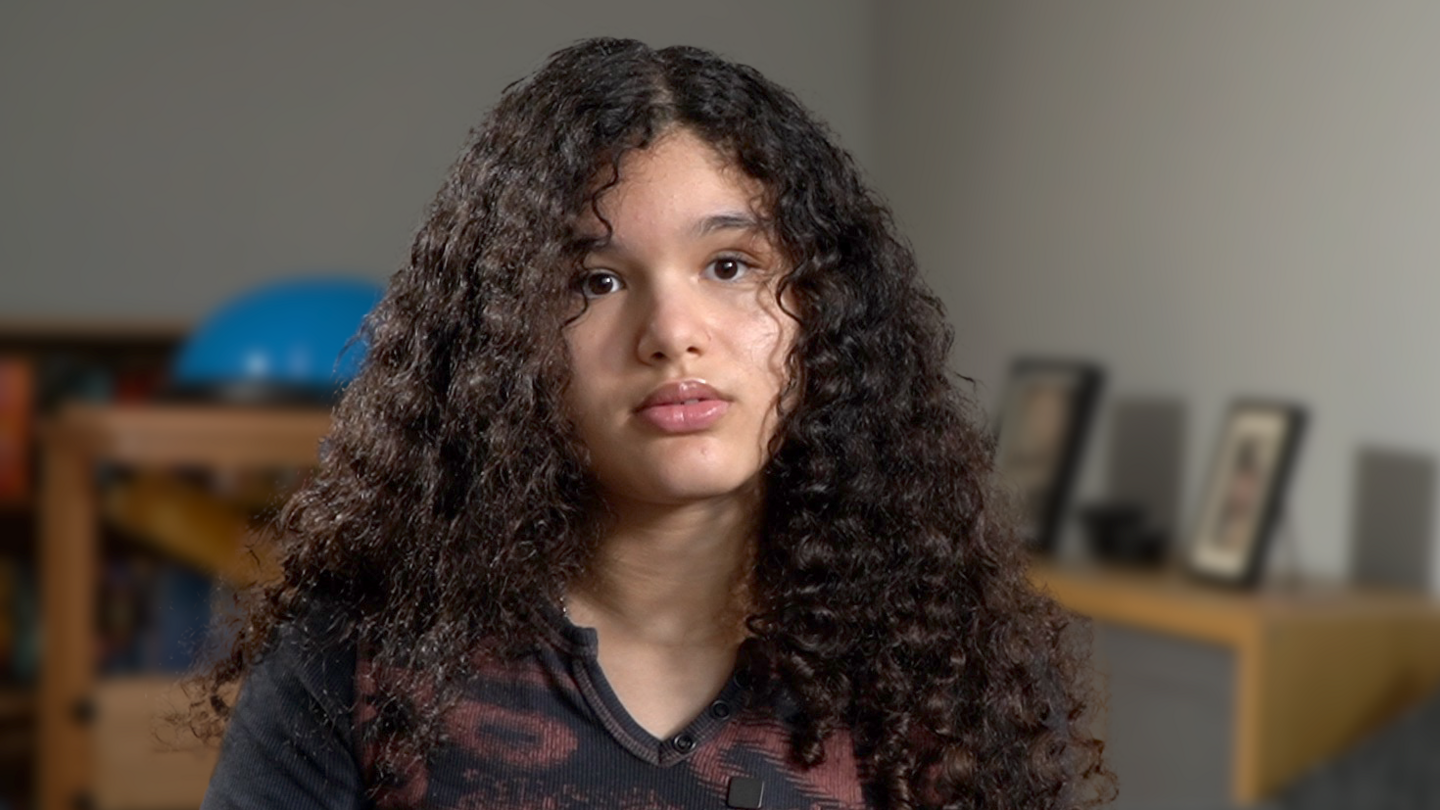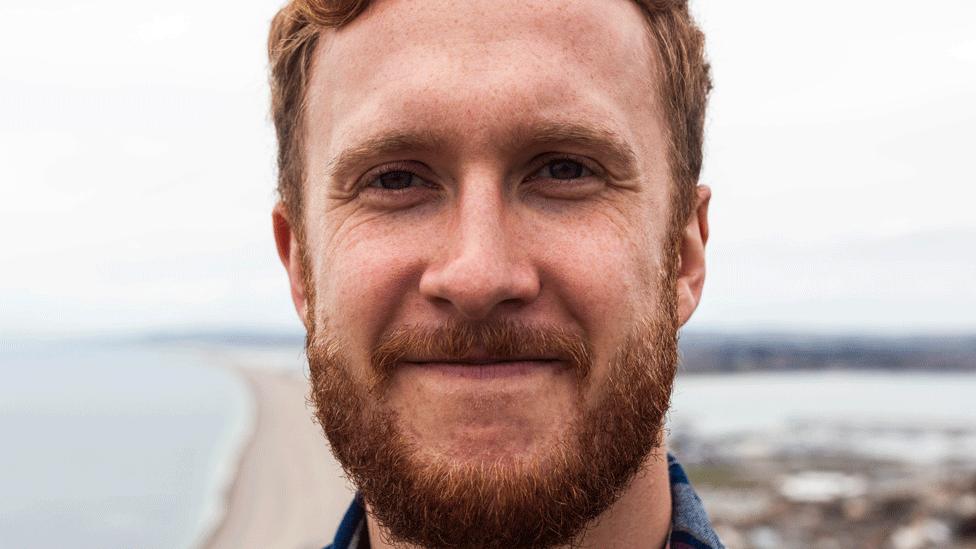'Early intervention for psychosis saved my life'

Symptoms of psychosis include hallucinations, delusions and disordered thinking and speaking
- Published
Craig Mackie started experiencing the symptoms of psychosis when he was in his 20s, saying: "I have heard voices and I have seen things."
He told BBC Radio Sussex the support he received from the Early Intervention in Psychosis Services has enabled him to "live alongside" his illness.
He now helps others through his role as a peer support worker for the service which he said probably saved his life.
Mr Mackie said early intervention is "hugely beneficial" and makes things "much easier for you in the long run".
Mr Mackie said the service was not something that he knew existed and added: "If I had known it existed earlier, things might have been different.
"If I hadn't found it then, I can't say for certain if I would be here now or not."
A recent study by Sussex Partnership NHS Foundation Trust found that early intervention in the first three years of psychosis improves outcomes for young patients.
The research was published in the British Journal of Psychiatry and funded by National Institute for Health and Care Research.
It looked into issues that can put young people off addressing their mental health issues, such as a lack of inclusion of family and friends in discussions about treatments.
Service users and carers said the Early Youth Engagement (EYE) approach helped with isolation, trust, personal goals, better communication with the service, shared decision making with staff, and family involvement.
The approach includes a website, booklet series co-written with young people, and other resources to support young people and families, and a training programme for staff.
'I wasn't alone'
Mr Mackie, who was supported by the service between 2017 and 2020, said early intervention makes "a huge difference".
"I couldn't cope with it because I didn't know what was happening," he said.
"I would hardly ever leave home. I didn't really talk to my friends and family. I wouldn't really do anything.
"Just having someone else that was able to understand me and knowing that I wasn't alone gave me a sense of relief.
"Now I can use that experience to help other people."
He said his psychosis has not gone away, but he now has the tools he needs to get on with life and his new job using his lived experience to support others.
"I now live with a voice. That's what I'm living alongside, rather than against," he said.
"[Psychosis] can be a scary thing, but also not a scary thing once you know what it is and you're able to live alongside it."
BBC Action Line: If you have been affected by issues in this story, find out what support is available here.
Follow BBC Sussex on Facebook,, external on X, external and on Instagram., external Send your story ideas to southeasttoday@bbc.co.uk, external or WhatsApp us on 08081 002250.
Related topics
Related stories
- Published23 November 2024

- Published18 September 2018

- Published21 August 2024
